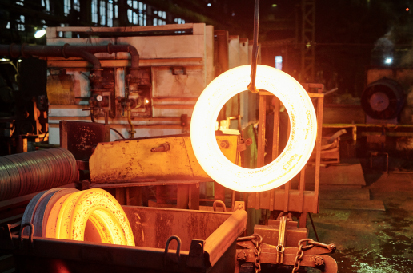Announcement
Get Ready for INDUS CUP 2K26! | Dates: 5–10 January 2026 | Stand a Chance to Win Cash Prizes up to ₹10,00,000!...Read more Get Ready for INDUS CUP 2K26! | Dates: 5–10 January 2026 | Stand a Chance to Win Cash Prizes up to ₹10,00,000!
We are excited to announce the Indus Hackathon 2025, an exhilarating one-day event organized by the CSE Department of Indus University....Read more We are excited to announce the Indus Hackathon 2025, an exhilarating one-day event organized by the CSE Department of Indus University.
26th ISTE Faculty Annual State Convention will be held at Indus University on April 27, 2023....Read more 26th ISTE Faculty Annual State Convention will be held at Indus University on April 27, 2023.
Get Ready for INDUS CUP 2K26! | Dates: 5–10 January 2026 | Stand a Chance to Win Cash Prizes up to ₹10,00,000!...Read more Get Ready for INDUS CUP 2K26! | Dates: 5–10 January 2026 | Stand a Chance to Win Cash Prizes up to ₹10,00,000!
We are excited to announce the Indus Hackathon 2025, an exhilarating one-day event organized by the CSE Department of Indus University....Read more We are excited to announce the Indus Hackathon 2025, an exhilarating one-day event organized by the CSE Department of Indus University.
26th ISTE Faculty Annual State Convention will be held at Indus University on April 27, 2023....Read more 26th ISTE Faculty Annual State Convention will be held at Indus University on April 27, 2023.


The aim of Master of Technology (M.Tech.) in Industrial Metallurgy is to advance student’s comprehension of the fundamental concepts used in the field of Industrial Metallurgy. The curriculum was developed to cater the needs of manufacturing industries and R&D institutions. It is a 2-year program (i.e. four semesters). Students take 12 courses relevant to metal industries in the first year and the second year is fully dedicated to project work. Students pursuing M.Tech. in Industrial Metallurgy learn about metallurgical procedures and metal design. Students in this field are qualified to work for Mineral Processing Industries, Manufacturing Industries, and Research Institutes. In addition, they can pursue Ph.D. courses and further advance their knowledge.
The Admission Committee for Professional Courses (ACPC) will admit students based on merit on 50% of the sanctioned strength for each course. The student needs to register himself with ACPC after the result.
50% of seats of the sanctioned strength of each course are Management Quota, admission of which is handled by the institute as per guidelines of ACPC.
The B.Tech degree in any engineering discipline from a recognized institution, with a minimum of 50% marks or an equivalent CGPA, is the minimum eligibility requirement needed to follow the course. GATE scores are used to determine admission to the best engineering school in this area.
At the end of the course, the student will be able to:
Indus University has an autonomous vertical - Training & Placement Department (T & P Dept.) - that connects two vital ends: education and the industry. It exemplifies a link between schools and university constituent associations (entry-level input) and the sector (output-end at the finishing level).
The Admission Committee for Professional Courses (ACPC) will admit students based on merit on 50% of the sanctioned strength for each course. The student needs to register himself with ACPC after the result.
50% of seats of the sanctioned strength of each course are Management Quota, admission of which is handled by the institute as per guidelines of ACPC.
The B.Tech degree in any engineering discipline from a recognized institution, with a minimum of 50% marks or an equivalent CGPA, is the minimum eligibility requirement needed to follow the course. GATE scores are used to determine admission to the best engineering school in this area.
At the end of the course, the student will be able to:
Indus University has an autonomous vertical - Training & Placement Department (T & P Dept.) - that connects two vital ends: education and the industry. It exemplifies a link between schools and university constituent associations (entry-level input) and the sector (output-end at the finishing level).
What academic opportunities are there for people who complete an M.Tech in industrial metallurgy?
Students with an M.Tech in Industrial Metallurgy can enroll in doctoral programmes (M.Phil or Ph.D) because it is a research-focused field, which is provided by many prestigious universities.
What professions are available to M.Tech Industrial Metallurgy graduates?
-Units that extract and process metals
-Construction businesses
-Heat treatment facilities
-The electrical industry
What is the duration of the M.Tec.h in Industrial Metallurgy programme?
The M.Tech in Industrial Metallurgy programme is a two-year postgraduate engineering programme that focuses on the development, manufacture, and usage of metallic materials as well as the process of extracting metals from their ores.
How much do graduates of M.Tech in Industrial Metallurgy earn?
The average yearly income for a metallurgical engineer in India is 8.5 Lakhs, with salaries ranging from 8.0 Lakhs to 8.6 Lakhs.